Hi! TV Editor Aya Lehman here! You may recall we posted a lovely review of WE ARE WHO WE ARE by contributor Ryan Michaels on the site recently. I thought that was a fascinating look at the limited series as a facet to the director’s cinematic career, but when Hannah and A.E. approached me about this avant garde discussion, I was like, “Can I have both???” And I’m the TV Editor, so my answer is yes. I am obsessed with their cultural criticism that manifests through such a shrewd, extremely gay lense, and I knew they would have fascinating takes on a very queer show. So without further ado: The Gays Weigh In.
A.E. Hodge: Hello readers of Merry-Go-Round Magazine! I’m A.E. Hodge and my partner in conversation today (and in life every day) is…
Hannah Vally: Me!
AH: And you are…?
HV: My birth name is Hannah Vally, but if you don’t want to give me flashbacks of Miley-Cyrus-related-bullying, you’ll call me Hans (European pronunciation).
AH: Like Hans Christian Andersen! Who was also a notable European gay, just like our friend Luca Guadagnino.
HV: Speaking of, let’s dive in. First, just a little housekeeping: one of the two lead characters of HBO’s WE ARE WHO WE ARE, which we’re here to discuss, Caitlin “Harper” Poythress (Jordan Kristine Seamón), is a trans youth who never fully commits to any particular pronouns within the scope of the show. For our purposes, we will be using Caitlin and Harper interchangeably as it pertains to the scene and using ‘they’ pronouns.
AH: So I want to start off by saying that I would never recommend WE ARE WHO WE ARE to anyone. I’m not trying to stick my nose into anyone’s personal business, you know?
HV: I’m still not sure if I liked it or not. I get the sense that Luca doesn’t really care if you like the show. All you’re supposed to do is feel it.
AH: Yeah, it’s not a show you can watch with your brain. Luca put every single one of his own thoughts in it; there’s not really room for yours. All that said, if someone asked you what the show was about, how would you describe it?
HV: I’d say WE ARE WHO WE ARE is an excessively European coming-of-age tale about two queer high school freshmen on an American military base in Italy. Their parents are played by famous people, Chloë Sevigny and Kid Cudi, which both draws you into the show and takes you out of it on a scene-by-scene basis. The kids do a good job despite delivering dialogue that sounds like it was written in Italian and then put through Google translate and not proofread, at all.
AH: I think it’s also worth mentioning there are elements of magical realism sprinkled in. Or if not magical realism, moments that are the cinematic equivalent of snapping in your face and saying, “Hey, you’re watching TV, remember? This isn’t really happening.” For example, the prolonged, mid-action freeze-frames, Caitlin and Fraser’s dance to “Time Will Tell,” that character named Luca who literally vanishes in midair… it gives it a really dreamy effect. I’m still not sure if the freeze-frames added as much as they were supposed to, though.
HV: It’s like Luca saw the last three minutes of HARRY POTTER AND THE PRISONER OF AZKABAN and thought, “Mr. Cuarón you’ve done it!”

HV: I would like to hear—in 300 words or less—your mildest take on the show, followed by your spiciest take.
AH: How can you have a “take” on a vibe?
HV: Personally, I like their avant garde take on captioning. The total ignorance approach.
AH: Right. You don’t know what they’re saying in Italian because the show’s subtitles for the Italian are covered by HBO’s closed captioning saying *speaking Italian*.
HV: What was your first impression of the show?
AH: I was very worried about all the children. And both confused and concerned as to why Maggie (Alice Braga) was with Sarah (Chloë Sevigny) and why she was so… chill with Sarah being inappropriate with and/or abusive to their son—though having the Colonel-to-be give her teenage son an airplane bottle of liquor because he’s being whiny is certainly a departure from the traditional depiction of military parents. On an unrelated note, I was delighted to see Dan Decker from A.P. BIO (Spence Moore II) playing Caitlin’s brother, Danny.
HV: Dan Decker!
AH: It’s great that he has the same name as his A.P. BIO character because it allowed me to watch the rest of the show with the belief that they take place in the same universe.
HV: His family does get sent off the base at the end… For all we know, that’s where his story continues! In… Toledo.
AH: But back to the base. We both also had a very stressful moment of… Oh God, is he doing CALL ME BY YOUR NAME 2: THE CALLENING? Every time they came back to the storyline with Fraser (Jack Dylan Grazer) and Jonathan (Tom Mercier), my blood pressure went up a little. Why must I watch an adult man flirt with a 14-year-old?
HV: And I still don’t know that it was necessary to have it go on that long. The only time I felt the authorial intent was at the very last moment of the very last scene you see Jonathan in. And even now, I don’t know whether the interaction was “bad” because Fraser and him didn’t have a happy ending, or because Luca thinks relationships with these power dynamics are inappropriate.
AH: Inappropriate and pedophilic, I mean they guy was supposed to be like, over 30.
HV: Not to go all midwest-Christian-mom, but the actors are actual young people and I cringed at the fact that a 16-year-old had to grind on a 30-year-old dude at any point. Same goes for the sex scene with Caitlin, one of the very first scenes we see them in.
AH: There’s definitely a part of me that feels very protective of all these kids—especially Frasier and Caitlin/Harper—because I see little parts of my own queer childhood in both their experiences.
HV: It’s uncomfortable to be presented with a mirror when you weren’t expecting one. Granted we would’ve been wearing Uggs with denim mini skirts instead of Fraser’s Comme Des Garçons Rolling Stones blazer, but the awkward and uncomfortable things that happen to them remind you of your own teen experiences. This show does a great job of highlighting all the moments in one’s life that fall somewhere between embarrassing and traumatic.
AH: What was also weird is that it all felt very unexamined. You said you didn’t feel authorial intent regarding Fraser and Jonathan’s storyline until the very end—I’m not sure that I felt authorial intent in any of the show. I could see it was a great deal of thought put into every moment, and despite all the specificity, it felt ambiguous on the whole. The show is what it is, it doesn’t matter what anyone meant to do when they were making it, it only exists as it is. La mort de le réalisateur or whatever.
HV: Every time you watch this show and you have the thought, “Wait, what? Why did that just happen? Who in the world would react like that/say that/do that?”—just know that somewhere, Luca is shrugging his shoulders and saying, “We are who we are!”
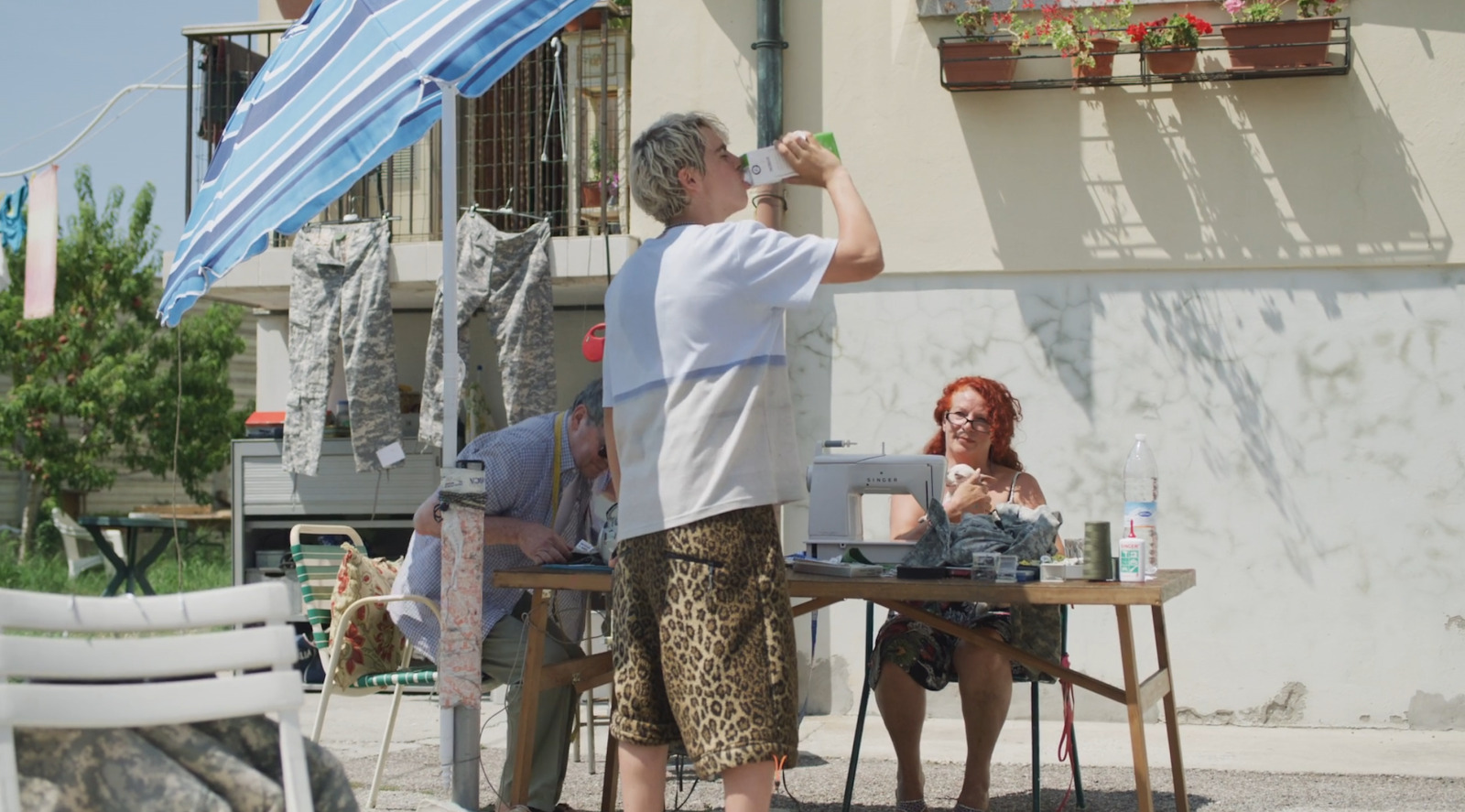
EPISODE 1
HV: The most memorable part of this first episode, for me, was king shit Fraser walking up to an old Italian couple, chugging box wine on their patio, and dancing in his earbuds. But most of this episode involves watching him walk around unsupervised, getting hammered, so it’s a brief moment of whimsy during an otherwise awful day.
AH: Despite most of the characters being American, it’s distinctly European. Visually, it invokes the experience of being an English-speaker and seeing «these fellas» (aka guillemets) instead of “these fellas” for the first time.
HV: Chloë Sevigny was serving major “Survive. Adapt. Overcome.” vibes but with like, colonialism. You don’t want any of the people in this family to have to spend more than 20 minutes together at one time. It’s intriguing and stressful. Every time you’re expecting something normal to happen, it doesn’t, and it really sets the tone for the whole show. Brava, Luca.
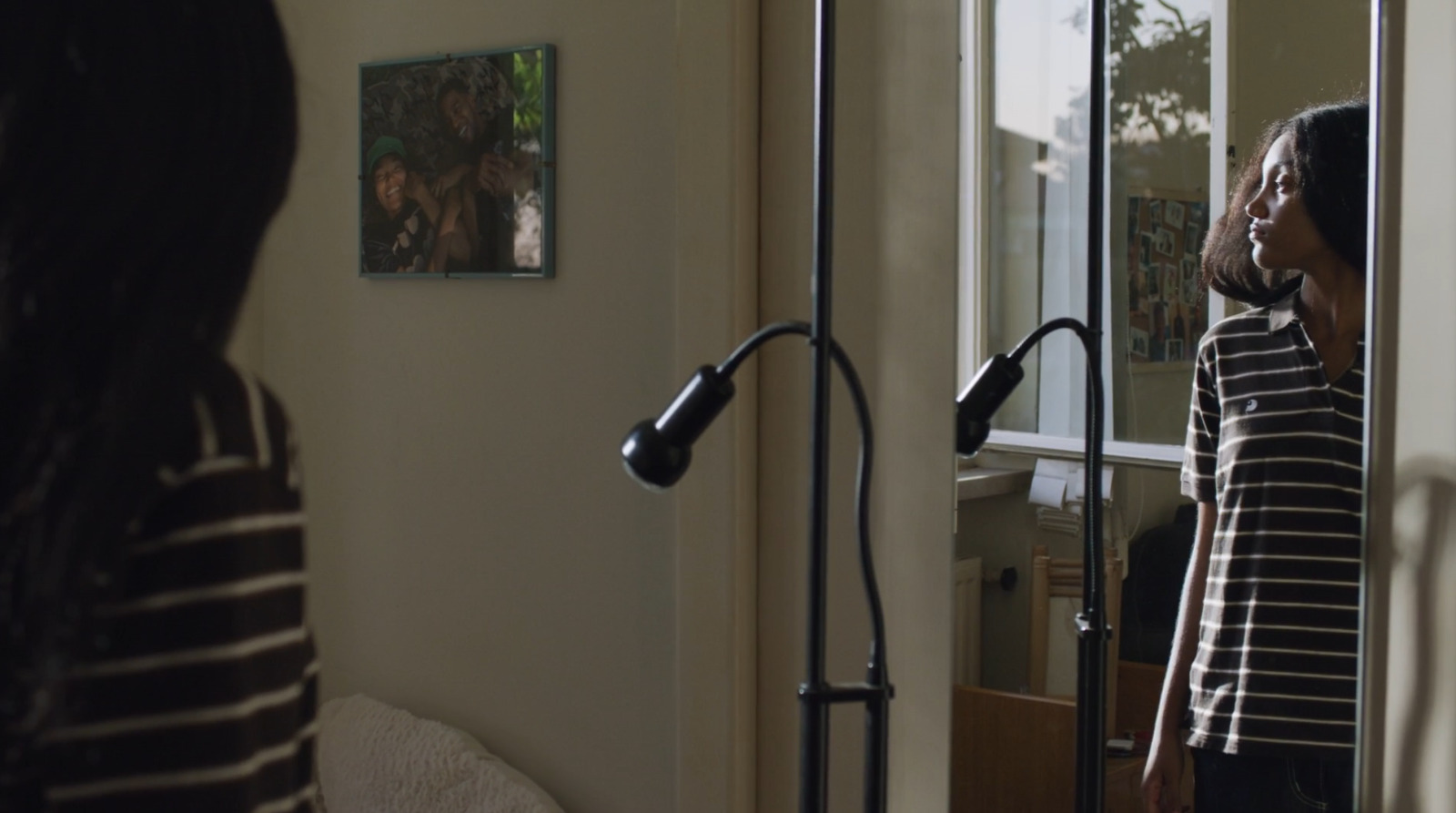
EPISODE 2
AH: I would buy a book of stills from this episode. It’s visually stunning.
HV: If the first episode hooks you for Fraser’s unique personality and family dynamics, the second hooks you with genuine concern for poor Caitlin. Most of their life circumstances are completely out of their control, and you get the sense that they won’t be a passive participant for much longer. I also loved the variance between Caitlin’s and Fraser’s perspectives of the day. Particularly how much less stealth Fraser is in that cafe from their POV. He comes off fairly creepy in these introductory episodes, but the stalker behavior quickly turns into teenage codependency. Which is mutual, at least.
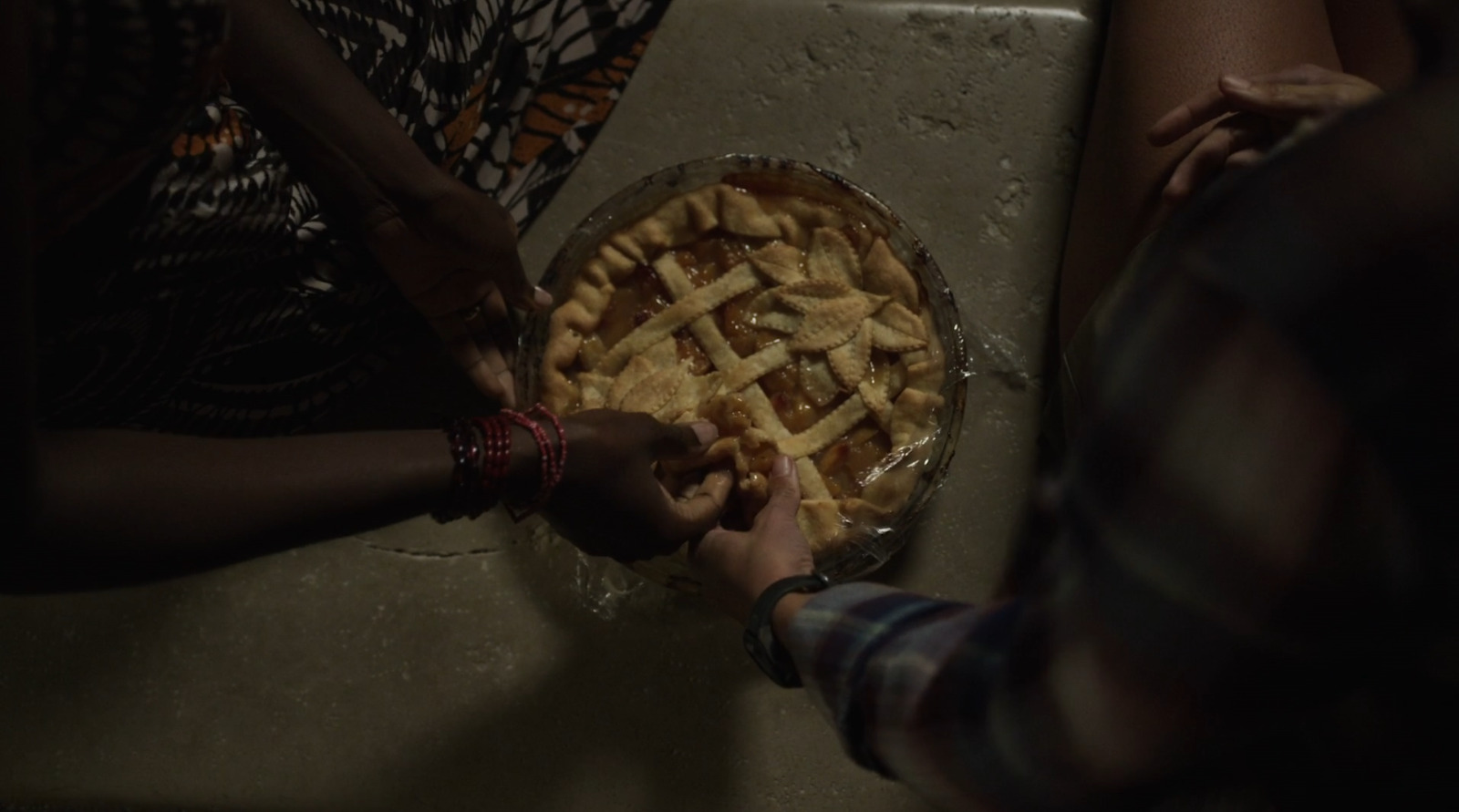
EPISODE 3
AH: Finally, some lesbian longing!
HV: I’ll admit I wasn’t fully committed to sticking with the show until this affair began brewing. It adds a much needed sexiness element to counteract the unbearable teen awkwardness. And it wouldn’t be Luca if someone didn’t homoerotically fondle fruit. Nothing says burgeoning romance like fingering a fruit pie together.
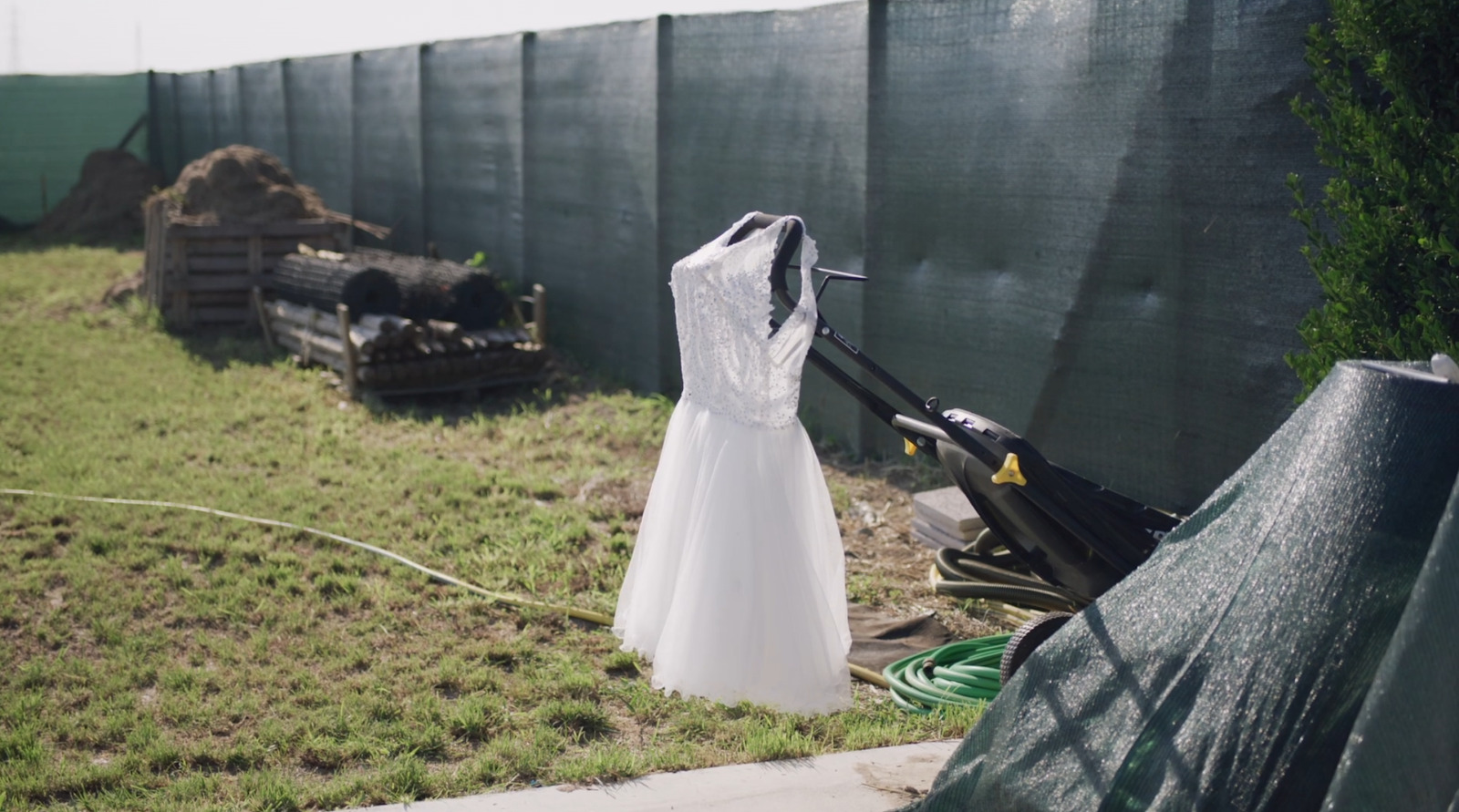
EPISODE 4
HV: This episode gives the viewer the nostalgic look back at the great teenage pastime of breaking into a Russian oligarch’s Italian villa.
AH: It’s just another aspect of the surrealism and magic, dude.
HV: I know it’s European, but if you ask me? Too much nudity. Put that away.
EPISODE 5
HV: The lesbian affair turned from sexy to stressful in .5 seconds. There are so many open windows in every room you choose to hook up in.
AH: There was a lot of tonal whiplash. From joy to fear, from exuberance to repression. The scene when Caitlin cuts their hair with Fraser was very sweet though. It was such a distilled and intense moment of childhood bonding—being afraid and excited and giddy together.
HV: Absolutely. The last scene of this episode has been interpreted a few different ways, but personally when I saw it all I could think was, “Wow, this kid knows how to play their father like a fiddle.” There’s nothing fathers love more when you disappoint their gender expectations than acting like an actual baby. I’m not kidding. I’ve tried this and it works.
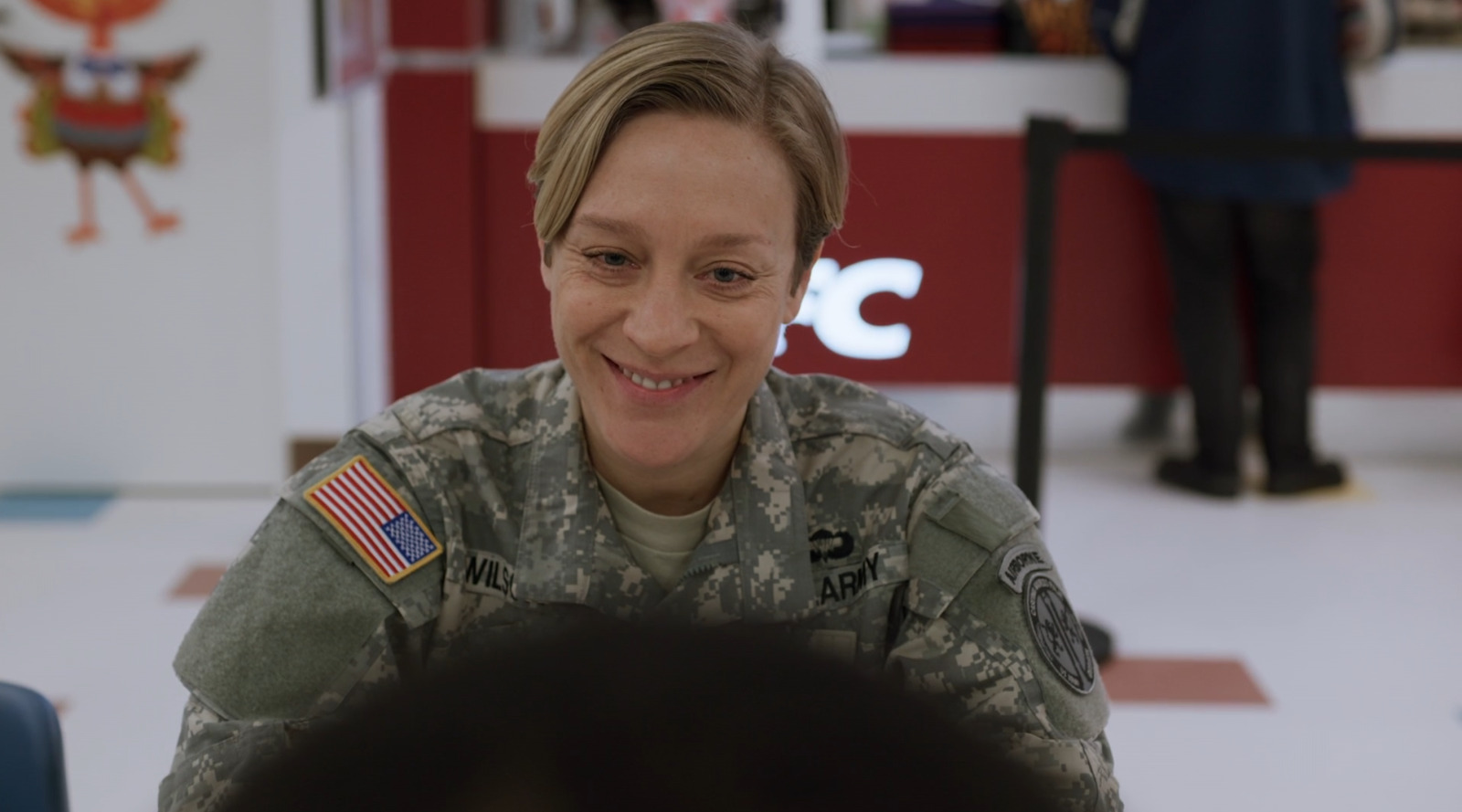
EPISODE 6
HV: Loved the surreal dance routine in the cafeteria, not so much Chloë Sevigny encouraging her son to have an inappropriate relationship with a 30-year-old man so she can live vicariously through him.
AH: I agree on both counts.
HV: And we can’t ignore the PSYCHO violin screech when the Colonel smiles after giving those pamphlets to Caitlin, can we?
AH: I’ve been trying to make sense of that one. On the surface, it seems like it should be a positive moment. Sarah is recognizing Caitlin’s queerness and offering them support and solidarity—ostensibly a good thing. But on a gut level I felt danger. Maybe it’s because Sarah’s motivation feels selfish. When Caitlin asks why Sarah is giving them the pamphlets, Sarah’s response is that “It’s time we change the world.” She might as well have said, “You’re part of my agenda and I’m using you to manipulate other people in my life.” It’s not a show of any kind of genuine love or kindness.
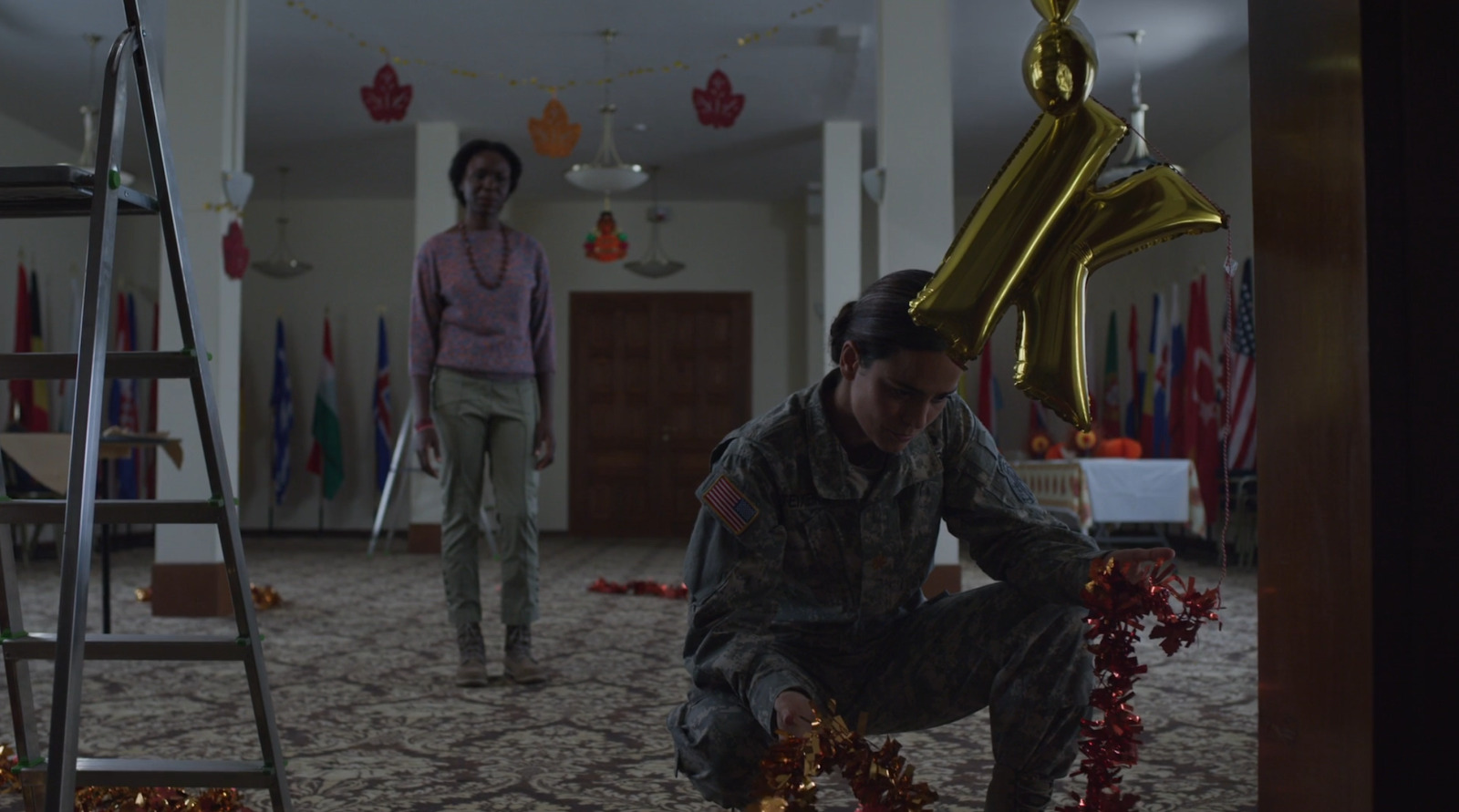
EPISODE 7
HV: Craig (Corey Knight) dying felt inevitable from the very beginning, so I was curious to see what the fallout would be. What I did not expect was Chloë Sevigny’s boobs in the middle of the war room. Like, I did want to see them, but if I was her subordinate I’d want to crack into my cyanide pill.
AH: Maybe that’s just how things are in the army? On a side note, I was very worried about Dan Decker for this entire episode. It’s never good when a teen starts banging an iron stick against a pole without speaking.
HV: There’s also a brilliant twist to Maggie’s story right at the end of this episode. Up to this point I kept trying to understand why Maggie—seemingly the only sane and balanced member of this family—never defends herself from her shitty spouse, her bratty kid, her thoughtless mistress. But then when she effortlessly suggests uprooting an entire family from their life solely to earn Sarah’s forgiveness, you realize she’s as selfish as her wife. She flirts and cavorts with goodness or righteousness but it can’t ever truly manifest. She admits to Jenny (Faith Alabi) that she never thought their relationship could last. They are who they are!
AH: I don’t know if it’s totally fair to call Jenny thoughtless, though telling Maggie that Fraser isn’t her son was a big yikes moment.
HV: Yes, that’s really the only thing I meant to say about Jenny. To that point she’s a victim to her situation as much as her kids. There’s definitely a parallel to be made between Jenny not being allowed to use her real name and Harper having to go around as Caitlin because anything else is unacceptable to Richard.
AH: The more I think about it, the more tragic Jenny’s story is, because she’s trapped in all these ways that her family isn’t. Her husband Richard (Scott Mescudi aka Kid Cudi) is the patriarch and has all the control—there’s no question of what he is or isn’t allowed to do insofar as his personal and familial relationships. Her children are at an age where they are taking ownership of their own paths, with Danny choosing to follow the religion of the father he never knew, and Caitlin/Harper finding ways to explore their gender. But Jenny still can’t use her real name because “Americans can’t pronounce Nigerian names.” There’s a tragedy in all their storylines, but Jenny’s hits hard because of how trapped she is in her situation.
HV: Speaking of Danny, I wish we’d had more of him throughout the whole series. I also wish I would’ve known that Episode 7 is essentially the ending for all character arcs besides Fraser and Harper’s.
AH: Yeah, if there’s a season two, I hope we get more of both Jenny and Danny’s stories.
HV: Dev Hynes’ score, for me, feels like another character in the show. It cuts into scenes and conversations the same way hyperactive Fraser does. The dissonance between what the score is saying and what your gut is telling you usually feels intentional, but something about the frantic musical crescendo over Danny’s last scene felt off in a way that I don’t think it was meant to.
AH: I loved it, though I think it’s worth mentioning that we always have very different reactions to religious imagery. The music is an active participant in every scene, and in this instance, the agitated orchestral score made me experience some small part of the turmoil that Danny has been experiencing—the grief and confusion and fear—and in turn, let me feel his release as the music turns triumphant, he finishes his ablutions and begins to pray.
HV: I guess that’s what didn’t hit for me—I felt no release at the end of it. Just the constant building. Which may have been the point. It feels like there’s still so much more he’s going to have to work through. In Toledo. On A.P. BIO.
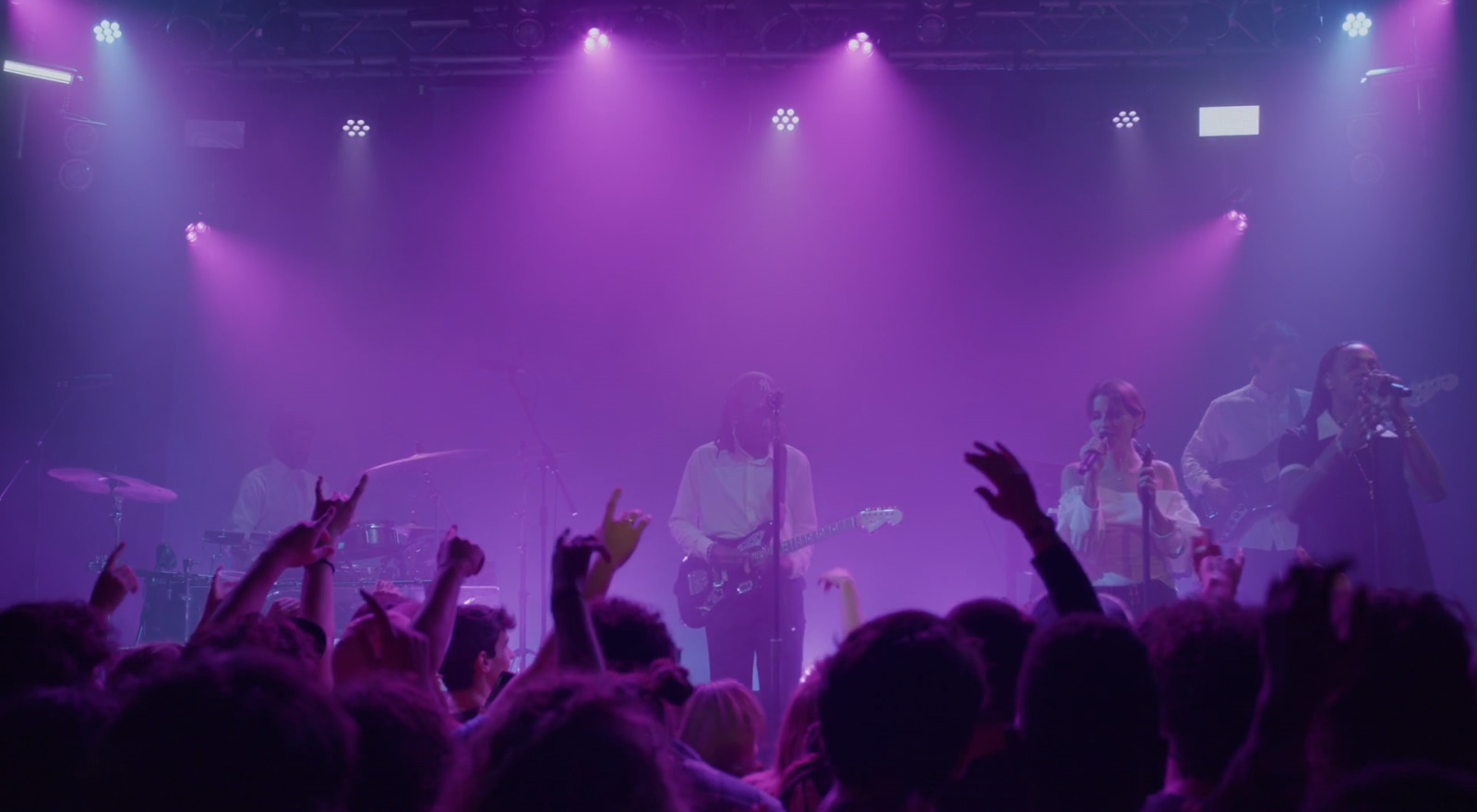
EPISODE 8
HV: One thing I loved was getting the experience of seeing Blood Orange live. It accurately replicated the concert feeling of being way too close to too many people in a too-small room someplace more inconveniently located than you are willing to admit when you buy the ticket.
AH: Yeah, even without the narrative, the concert itself was very moving. It was an intimate performance.
HV: I truly, and I cannot stress this enough, NEVER want to see teenagers kiss ever again. Some of the worst dialogue in this show happens between Caitlin and Britney during her “love” confession. But even then I start to wonder if it was intentional, as teenagers are wont to earnestly use cliches with wild abandon in real life too.
AH: They really do, it’s very sweet. Now about the ending: we had very different experiences, but I don’t think either of us is right or wrong.
HV: The only way I can see myself vibing with it is if you read it as: Caitlin wants to be Harper and be seen/validated as Harper from someone not on the “inside” (i.e. queer), such as the townie she goes out with in Episode 5. Fraser wants to be seen as an adult and an intellectual from someone not on the “inside”—much like Jonathan. Caitlin/Harper and Fraser dance around what other people think of their relationship, vehemently opposing any kind of romantic attraction. But ultimately Fraser does want Harper to be the kind of man that Fraser is attracted to, and Harper is jealous that there might be another boy to replace them in Fraser’s life. But in the end—let’s say it again folks—they are who they are, and despite yearning for that outside validation, the one they need and currently have validation from, is one another. But then again, Fraser’s paramour at the concert probably wasn’t even real so why would Harper be jealous? My favorite romance trope is best friends to “lovers,” so I thought I would be into it, but something about it just didn’t vibe with me.
AH: I can’t quite say why I liked the ending. I think it just felt like the inevitable thing. After all the drama and strife of the last seven episodes, it was nice to have love—whether you interpret it as romantic or platonic—be the inevitability.
HV: That’s true, I have seen pleas online from the youths for more platonic making out, so perhaps it went over my head.
AH: Ah yes, the indecipherable language of youths and Europeans. Even when I don’t understand, it sure is nice to listen to.
HV: And for our closing statement, in summation of what I believe is Luca’s thesis, I’d like to conjure the spirit of Ty Pennington moving a large motor vehicle:
WE! ARE! WHO! WE! ARE!


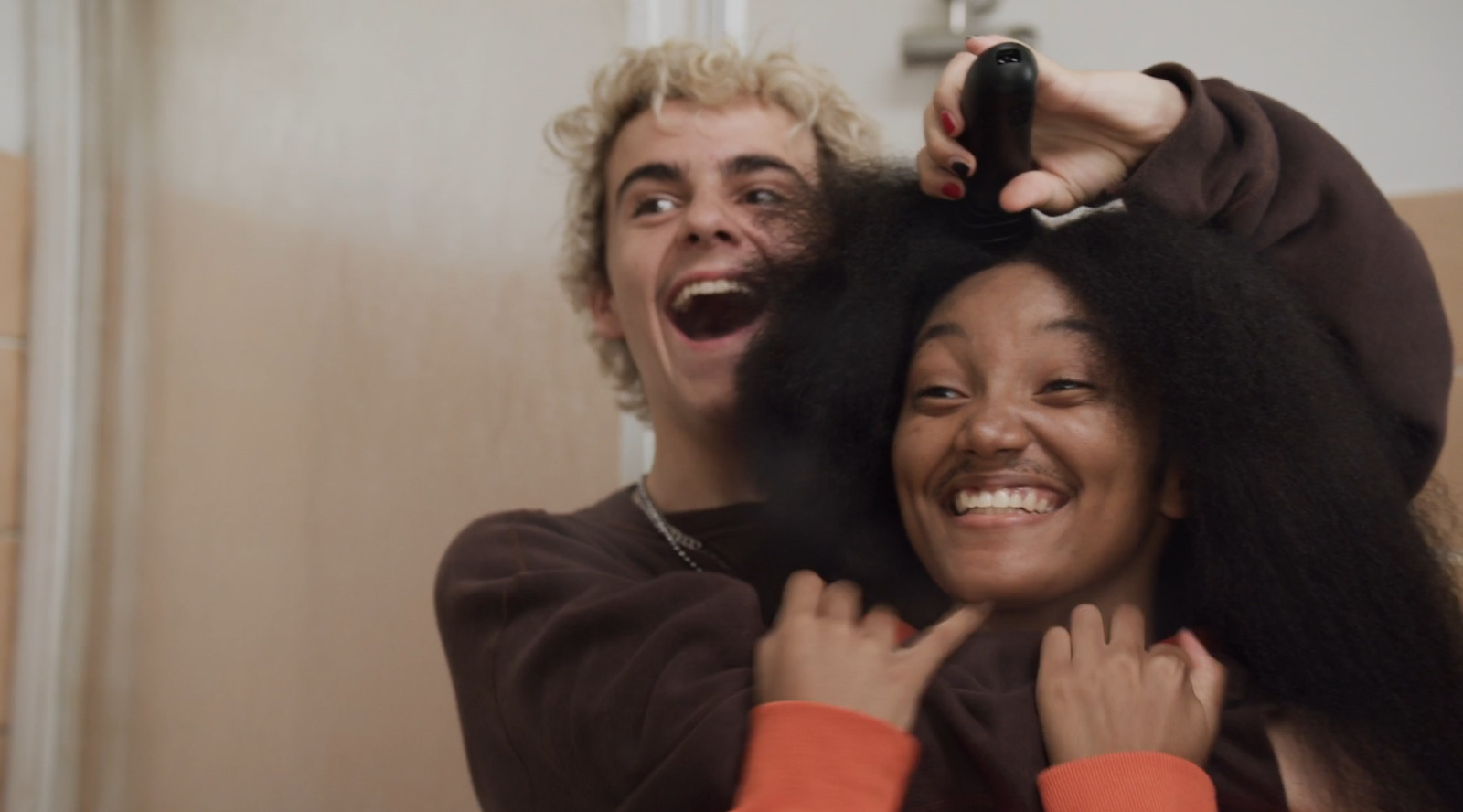
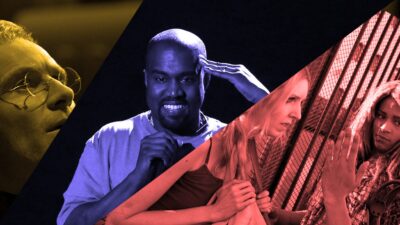
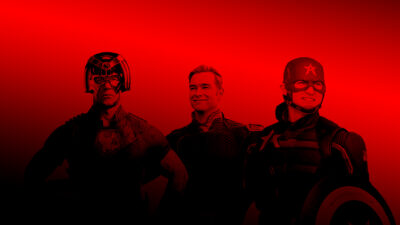


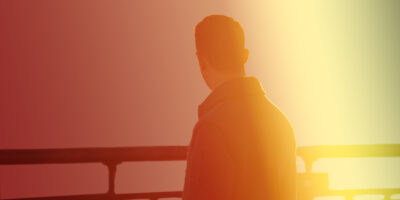
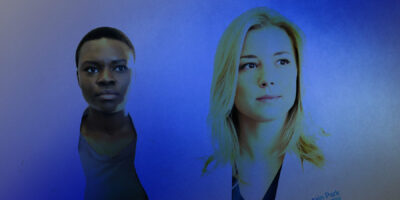
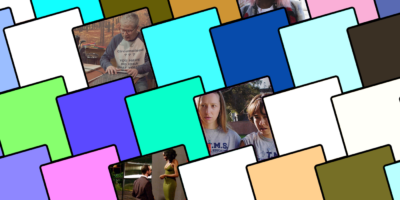
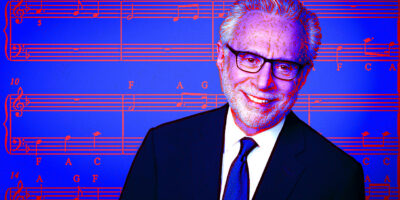
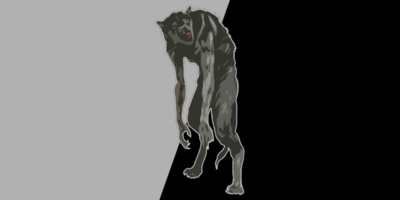
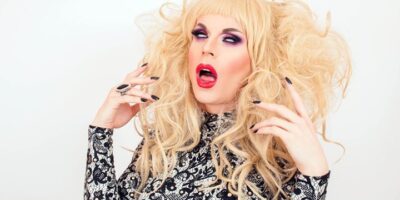




Comments